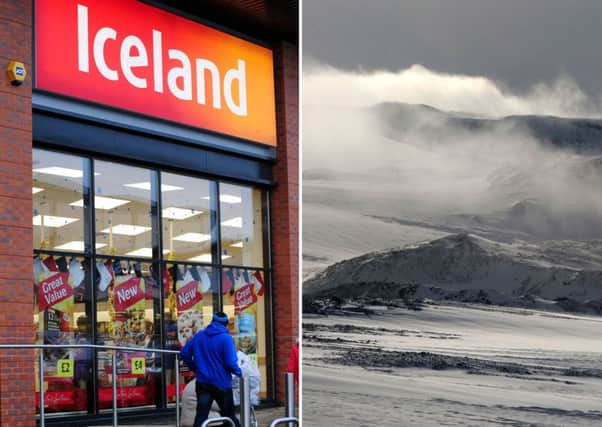Martin Flanagan: N'ice and easy does it with trademark row
This article contains affiliate links. We may earn a small commission on items purchased through this article, but that does not affect our editorial judgement.


As Iceland Foods says, the retailer and the country of Iceland have enjoyed a “peaceful co-existence” for nearly half a century before the north Atlantic dispute cast a chill.
Not only did relations survive footballing minnow Iceland’s stunning 2-1 victory over England in the Uefa championships last summer, the British company also sponsored the country’s triumphant football team in those championships.
Advertisement
Hide AdAdvertisement
Hide AdAnd for seven years from 2005, Iceland Foods was under the control firstly of Icelandic investors and later Icelandic banks, before founder and current chief executive Malcolm Walker led a management buyout.
The nub of the dispute is that the government is unhappy at what it claims is the company’s aggressive legal actions against Icelandic businesses using the word “Iceland” as part of their trademark even when the products and services do not overlap.
The upshot is that, amid verbal hostilities, Iceland (the country) has mounted a legal challenge against Iceland (the food retailer) at the European Union Intellectual Property Office with the aim of ensuring Icelandic companies can use the word “Iceland” in relation to their goods and services.
It should not be beyond the wit of m’learned friends to iron out their differences based on commonsense and goodwill.
Rivetting stuff
Sir John Parker’s independent report into the shipbuilding industry gives food for thought. He says the procurement process needs accelerating, and that “modular construction” should be used more, ship components being produced across the UK before being assembled in Scotland.
Parker says this would ensure a better grip on costs and timeframes on shipbuilding projects for the MoD. Even so, it will cause unease at the Scottish shipyards, with the obvious implications of a zero-sum game. Less controversially, Parker’s call for a 30-year published timeframe on MoD shipbuilding programmes would inject strategic clarity.